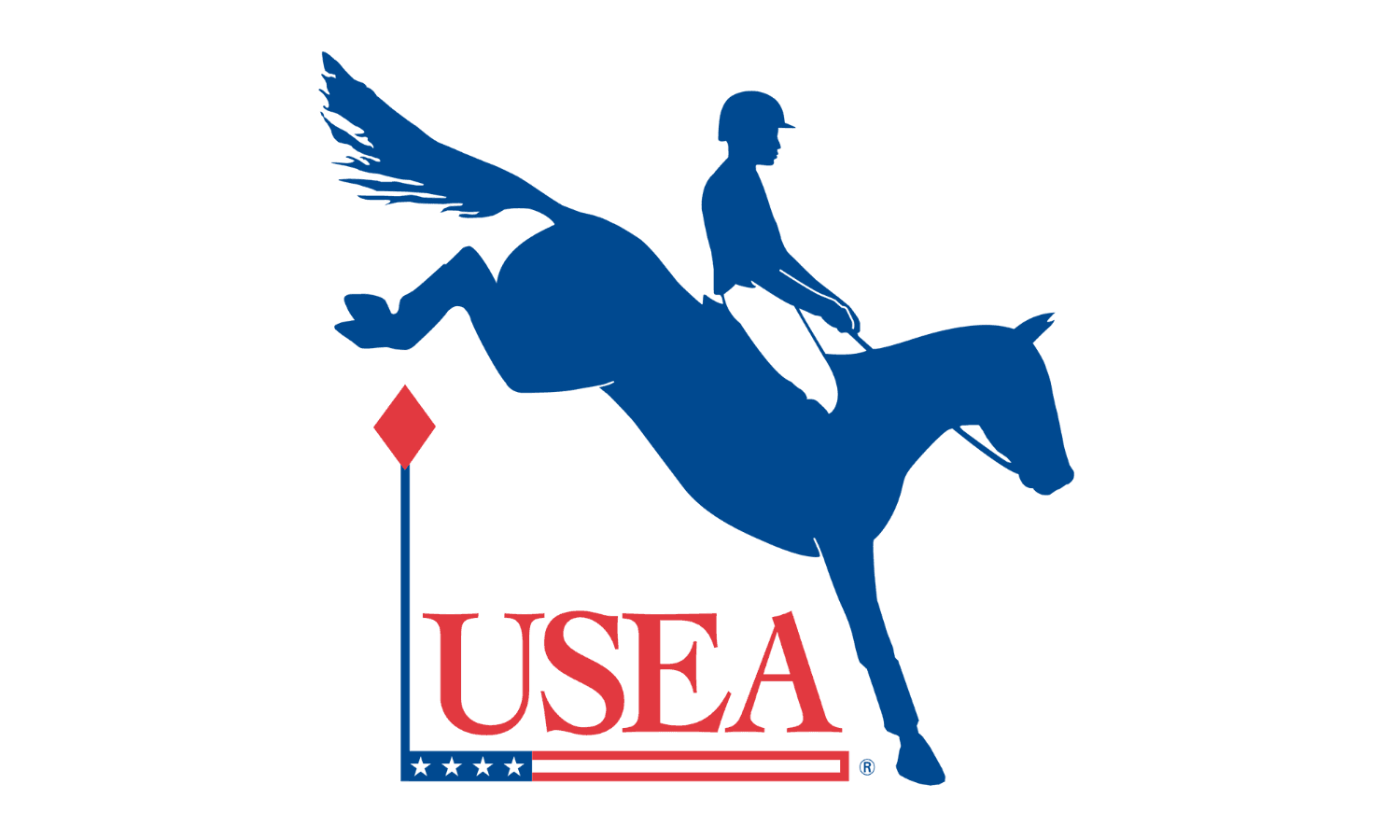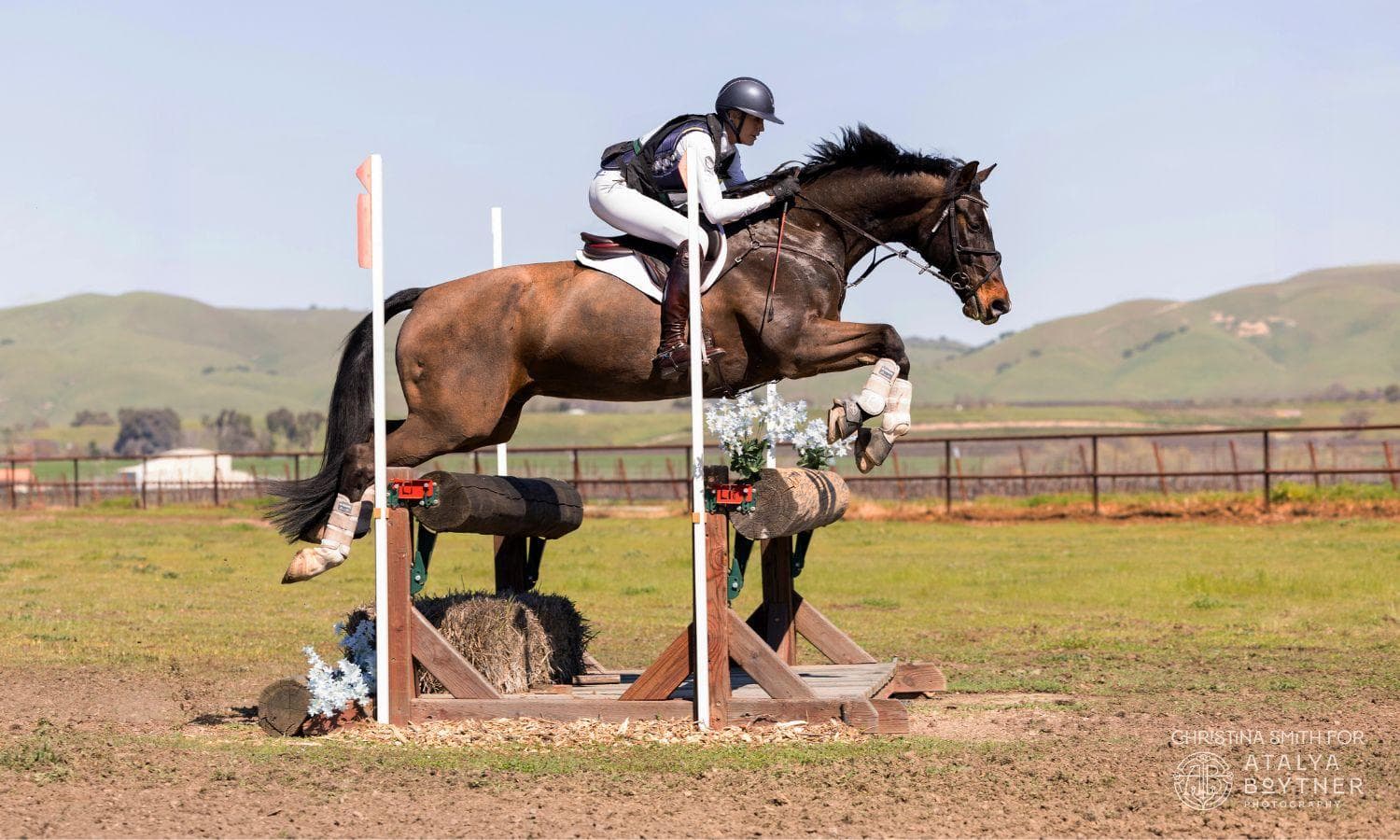Rule Changes Covered During February Meeting of the USEA Board of Governors

The United States Eventing Association (USEA) Board of Governors met virtually on the evening of Feb. 23 for the first Board meeting of the year. The focus of the agenda was centralized around one theme: rule change proposals. Following the overview of the December meeting minutes, USEA President Lou Leslie presented a slideshow in memory of James Wofford featuring photos from Wofford’s storied career and quotes from former and current USEA Presidents regarding his impact on the sport of eventing.
At the December meeting of the Board of Governors, there were several new modifications and rule change proposals brought forward for discussion before being presented to the United States Equestrian Federation (USEF) for final approval.
One extraordinary change was put forward by the USEA and was certified to move forward by the USEF. This rule change surrounds EV122 and is outlined as follows:
Rule change intent: To eliminate and/or mitigate the risk of competitor injury during the cross-country phase. Implementation of the following penalty for all riders across all levels at recognized/endorsed competitions brings U.S. Eventing regulations in line with the FEI and is being recommended by the Cross-Country Safety Committee.
See Appendix 7 for diagrams.
1. GENERAL. Faults (i.e., refusals, run-outs, and circles) must be penalized, unless in the opinion of the appointed personnel, they are clearly not connected with the negotiation or attempted negotiation of a numbered Obstacle or element. The negotiation or attempted negotiation of an Obstacle commences with the presentation of the Horse to the Obstacle. Falls will be penalized whenever they occur on course between the start flags and the finish line.
The remaining four Eventing Rule Changes (EV110, EV119.2,.3, and .4 , EV136, and EV145) are considered standard rule change proposals and, if approved, would not go into effect until the start of the 2024 season on December 1, 2023. All of the General Rule change proposals mentioned below were proposed by the USEF and the USEA will provide the feedback outlined below regarding these proposals.
The rule change proposals which were passed by the USEA Board of Governors and will move forward for review by the USEF are as follows:
EV110 Entries
Rule change intent: To exempt the USEA American Eventing Championships (AEC) from the 10-day qualification period prior to the start of the cross-country test of the competition for which it is needed. Due to the number of entries received for the AEC, the extra week permitted puts a strain on show personnel to process, verify entries, and notify waitlisted acceptance of entries, in a timely manner, to confirm transportation plans for those traveling a long distance.
The motion was approved and the new regulations being proposed to the USEF will request that qualifications for the USEA AEC must be fulfilled by the closing date.
EV119.2,.3, and .4 - Dressage Phase Scoring
Rule change intent: To clarify existing confusion among judges.
The following changes to the language of the relevant sections of EV119 were proposed and approved by the Board to present to the USEF:
2. The following are considered errors, and two points will be deducted per error, but they are not cumulative and will not result in Elimination:
a. Entering the arena, or the space around the arena before the signal to start, with a whip (when they are forbidden) or with boots or bandages, or discrepancy of dress (e.g. lack of gloves at Intermediate and Advanced levels). The Judge at C may stop the Athlete and permit an assistant to enter the arena to remove the item(s). The Athlete may continue and marks given before they were stopped, if any, are not changed;
b. Entering the arena before the signal is given; Not entering the arena within 45 seconds after the signal is given, but within 90 seconds is a two point penalty.
119.3 In the case of a Fall of a Horse and/or Athlete, the Athlete will not be Eliminated. The Athlete will be penalized by the effect of the Fall on the execution of the movement concerned and in the collective marks.
119.4 After Elimination, an Athlete may complete their test, at judges’ discretion.
EV136 Inspection of Course
Rule change intent: To eliminate unfair competitive advantages and mitigate risk in the show jumping and cross-country phases. Implementation of the following requirements for course designers at all recognized/endorsed competitions, is being recommended by the Course Designers/Builders Committee.
A motion was approved by the Board to add the following subsection under Section 1. Cross-Country Course and will be presented to the USEF for approval:
d. At a minimum, the course designer must visit the event site once every 12 months or after every third event, whichever comes first.
EV145 Cross-Country Obstacles
Rule Change Intent: At the present time, there is no rule discussing leading edges of jumps. This language is being added to stay in compliance with the FEI rules, and to stay up to date with our safety protocols. This PRC mimics FEI Rule 547.2.6.
The Board voted to approve presenting the following language to the USEF for review and approval under Section 6. DIMENSIONS:
e. Sloping & Round Leading Edges:
Spread fences including corners must not have an upright or vertical leading edge. The top of the front of the fence must be rounded or sloped. All other fences, including gates and fences using square and/or sawn materials, must not have any sharp or square edges. Brush fences are excluded provided there is at least 20 cms of brush above the solid part of the fence.
GR314.d.1 Mileage
Rule change intent: To outline regulations around mileage exemptions for eventing competitions consisting exclusively of showcases or arena eventing.
A motion was passed to add the following language under Section D. Mileage Boundaries for Eventing Competitions: For Eventing competitions consisting exclusively of Showcases or Arena Eventing, there shall be no mileage.
GR801.2 Dress and EV114.1 Protective Headgear
Rule change intent: To include SNELL Foundation as an acceptable helmet certification along with ASTM for use in USEF Competition. The FEI recognizes the SNELL Foundation helmet certification as acceptable protective headgear.
The motion to support this rule change was passed with no oppositions or abstentions by the USEA.
GR 846.2 and GR848 Safety Coordinator
Rule change intent: Stewards and Technical Delegates (TD) are often elsewhere on the competition grounds when an accident or injury to a human or horse, or a collapse of a horse, occurs. Due to the Federation’s reporting requirements, notification to the Steward or Technical Delegate by the Safety Coordinator or Management within one hour of its happening, will enable the Steward or TD to report in the required amount of time.
A motion was passed to require the Safety Coordinator to inform/report accident or injuries to the TD within one hour.
GR848.6 Safety Coordinator
Rule change intent: To include physician’s assistants and nurse practitioners as individuals permitted to provide medical clearance for return to competition following suspected head injury or concussion.
The USEA Board of Governors voted to support the language change in this rule that would allow physician’s assistants and nurse practitioners to be added to the list of medical professionals who could clear a competitor for Federation-licensed or endorsed competitions as proposed by the USEF.
GR1101 Horse Identification Number and Horse Identification Form
Rule change intent: The accurate identification of horses is essential. At Federation Licensed Competitions, the best manner in which to identify horses is through a Federation Horse Identification Number, which does not require recording with the Federation. During times of disease outbreak, natural disasters, theft, and to protect against fraud, microchipping of horses is fundamental to good horsemanship. The requirement for all horses competing at USEF licensed competitions to be microchipped is in the interest of horse welfare. While microchipping of horses will be required, members will be encouraged to explore the use of biothermal microchips that allow for Bluetooth connectivity for monitoring of horse temperatures.
A motion was made and seconded to approve GR1101 with recommendation for endorsed levels to be exempt.
GR1214 Results
Rule change intent: The reporting of officials at competitions has been instrumental in providing accurate competition records, assisting with licensed official applications, and tracking issues that arise with specific classes. If the Federation has access to this data, the Licensed Officials Department will be able to efficiently address concerns and improve our data records related to officiating. At this time, we only know which officials were at a competition and in what capacity, but we do not know who officiated each class. Dressage has led the way with providing this information and it has proved to be extremely valuable. This rule change would require all judges and course designers to be reported with each class. Stewards and Technical Delegates are not required since they do officiate over the entire competition.
The motion was passed with no oppositions or abstentions and will be presented to the USEF.
GR1040 Conflicts of Interest and Restrictions - Stewards and Technical Delegates
Rule change intent: To prohibit a Technical Delegate or Steward from officiating at a competition where family/a client is acting as a judge, trainer, coach, etc.
A motion was approved to support the language proposed by the USEF for this rule change:
6. The following is prohibited for a Steward or Technical Delegate: a. Officiate at a competition where the Steward or Technical Delegate’s family or client is acting as a Judge, trainer, coach, lessor, lessee, exhibitor, rider, driver, handler, or vaulter; and b. Officiate at a competition where the Steward or Technical Delegate’s family is serving as a Federation Licensed Official, Competition Licensee, Competition Manager, or Competition Secretary.















